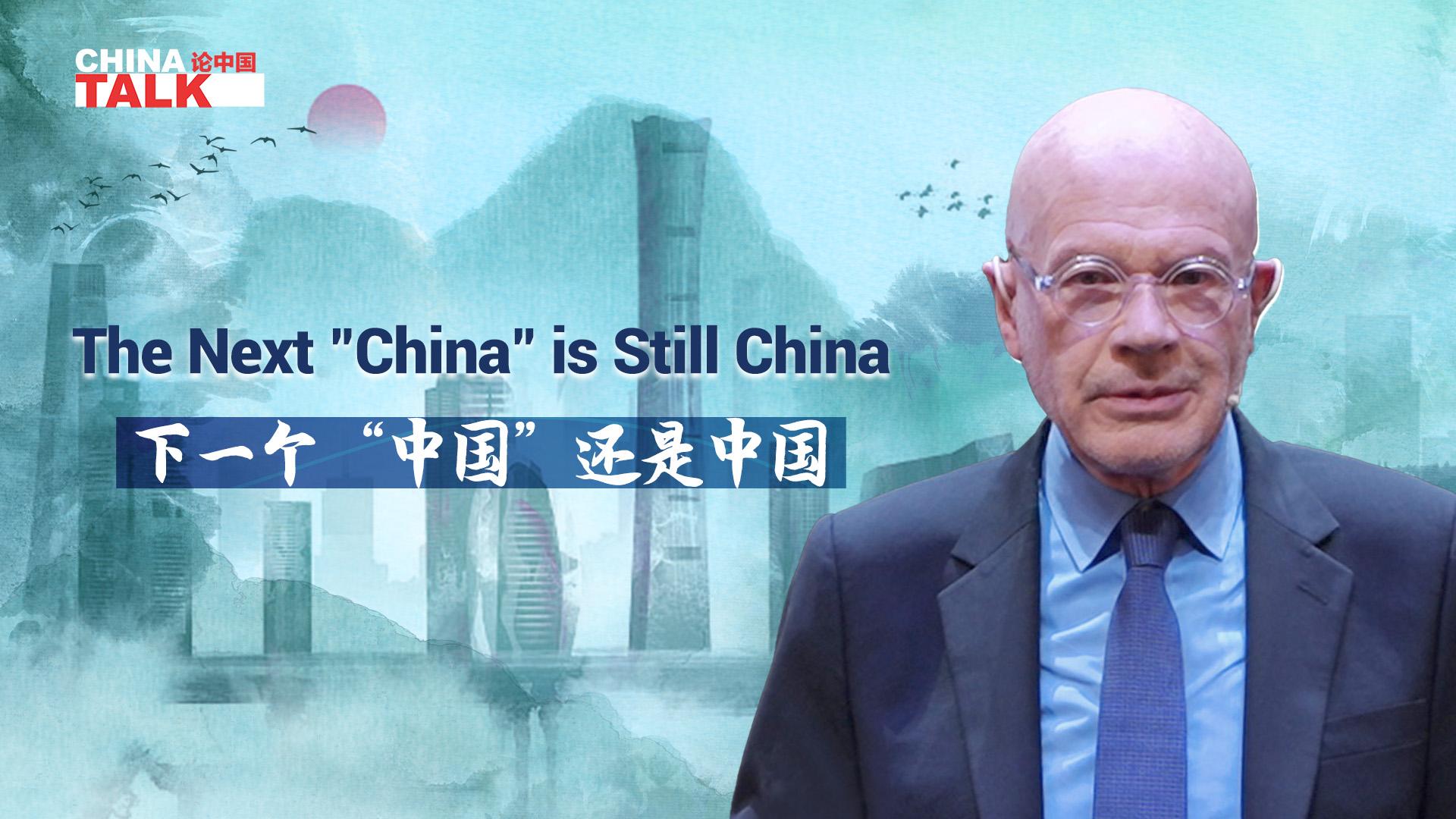
From:



Hello and welcome to China Talk.
It's a splendid privilege for me to be able to speak to you in this talk. And I hope you enjoy it.
75 years, China has changed so much in that period since the revolution. In 1949, China was just emerging from partial colonization, from a really bitter civil war, and China was poorer at that moment than quite a few African countries. And if you go back further in history, 100 or 150 years and so on, an extraordinary feature of China was that over that whole period, it barely grew at all it was about one percent a year. So we come to China's extraordinary transformation. Today, by at least one measure, that is Gross Domestic Product (GDP) by primary purchasing power, China's economy is the largest in the world. It possesses probably more industrial sectors than any other economy. Its living standards, well, I mean, there's been such an extraordinary change in the situation. And China is a significant leader in various technologies already. This is remarkable.
China has changed at the speed of light. It's the most remarkable economic transformation in human history. And it has taken just 40 years. Now, what is 40 years? 40 years is half the average lifetime of a person. Just half. You know I remember my introduction to China. The first time I went to China was in 1993. It was just a sort of tour. It was a tour up from Hong Kong. And I was on this bus. We were bumping along. Part of the road was made up. Part of it was dirt track and so on. The road itself there were so many different forms of transport from the last 100 to 150 years on that road the latest flashy Mercedes Benz with darkened windows. But most of them were just very primitive forms of transport. And as far as the eye could see, the land had been cleared for development. And although it was in the countryside, it was teeming with people. And the people were so going about their business. They were so intent on ending a life of poverty. And so China was moving on from backwardness to eventually what you see today.
Now there's one really important point I want to make on this. And that is, look, compared with 1949 or 1978 or today, China is completely unrecognizable. Or is China just a totally different place? Or is it in some profound way, the same China? And I would argue that the extraordinary thing about China and why it has been so successful over such a long period of history, it's had bad times, but it's had some great times, for three or four times, (it was) probably the most advanced civilization in the world, or one of the most advanced civilizations in the world.
China was born a civilization. That's its template. And that lasted actually until the late 19th century. It was only in the late 19th century that China began to acquire some of the characteristics of a nation state, for example, borders, I mean China as a civilization did not have borders. Even today, China, I would argue, is primarily a civilization state and only secondly, a nation state. It is quite different from the West. The West of all, being modern western countries, born as nation states, and they are nation states, they behave like nation states. China is quite different in relation to this. And the important point here to grasp is some of the most fundamental characteristics of China, which probably most of us in some way or other take for granted, are really a product of China's civilizational roots. For example, relationship between state and society, the role of the family, the pivotal importance of education, many other things (like) the notion of the individual. The notion of the individual is very different from the Western way of thinking about individual. All of these things are actually the template of China, which is a civilizational template, which has lasted all through these various different eras of China's history.
Now, we are at a major historical point. China is reaching the point of modernity. It has finally arrived at Western levels of development, in some areas it is ahead of Western levels of development. If you go to countries in Western Europe, some of the small ones especially, China's in a different era really. And the reason why this is historically so significant is as follows: The story of modernization is essentially a Western story. It starts with the British Industrial Revolution in the first half of the 19th century. By as late as 1945, modernization and modernity were an exclusively Western story. Apart from Japan, every country was Western. And what's more, the West and Japan use modernization against the rest of the world. Essentially, they colonize, including China. And in colonizing it, they deliberately held back its development, they prevented modernization. So essentially, those societies were caught in a situation of paralysis and stasis. That was a fundamental characteristic of Western modernization. And Chinese modernization? Well, it is extraordinarily different from the Western mentality. Chinese modernization sees its role, sees its place in the world, alongside other developing countries, to give the opportunity for developing countries, to begin the process or advance along the process of modernization. So essentially, Chinese modernization you can think of as a public good for the developing world. And remember, the developing world including China, accounts for something like 80 to 85 percent of the world's population.
The West, always remember this, the West is a splinter of humanity; it is about 12 percent of humanity. So the question then I think is what is Chinese modernization more generally going to be like? And I think this is a really interesting question. China's clearly now launched on a major debate on this question. I have made one absolutely crucial point. It's going to have a different relationship with the world, the developing world above all. But what is it going to mean in terms of what it's like? I think this is a great question, a fascinating question. Is it going to be like western modernization, or is it going to be something different? And clearly, now China is exploring the possibility of being very different, asking a different question. It is not narrowly for material gain, not narrowly for profit, but on the contrary, it's thinking it should be people-centric, it should be in people's interests, it should allow people to take command of their lives and take command of society in a different kind of way.
Now, you can see all, China therefore is embarking now on a different kind of growth. The period of high-speed growth is being replaced by high-quality growth. The green growth, carbon-free growth, these integrating the real economy with the digital economy. These are now the key targets. So China is going to be so different.
In 20 years' time, China is going to be so different from what it does now. People will be living in totally different ways, traveling in different ways, doing different kinds of jobs, all the rest of it. But I leave you with a thought. Sure! China will be very different. But, actually, the next China will still be China, because the extraordinary history of China that civilization expands of thousands of years has been hugely beneficial, not just for China, but for the whole world. And in different eras, it's given so much. And in this era, it's giving and in the future, it will give even more.
Thank you very much!
